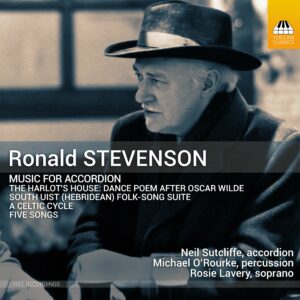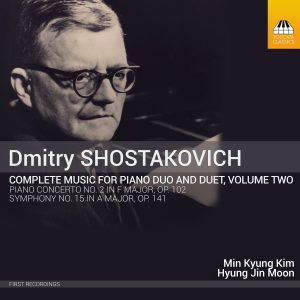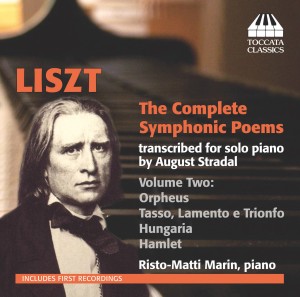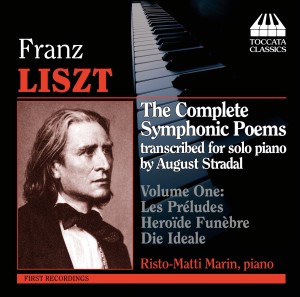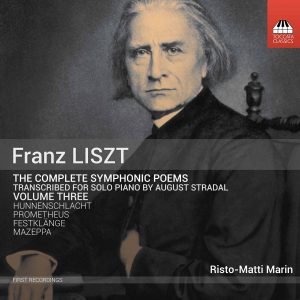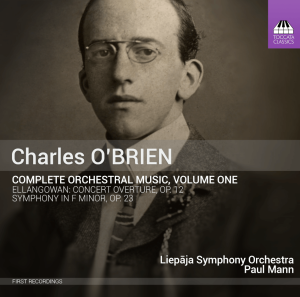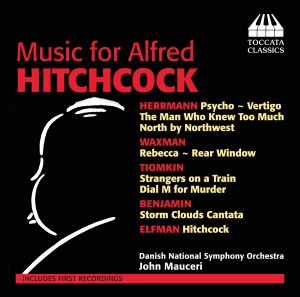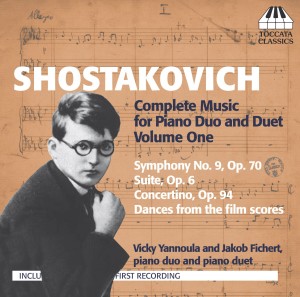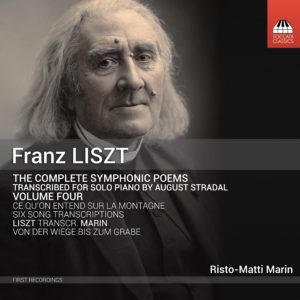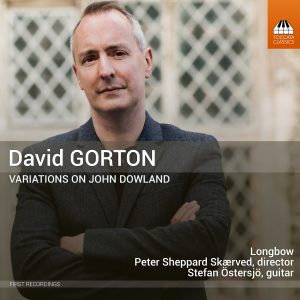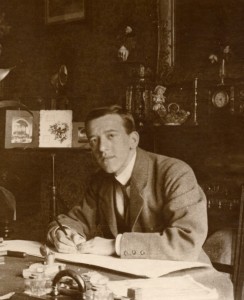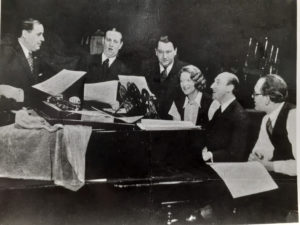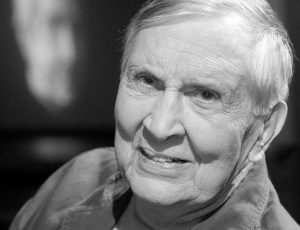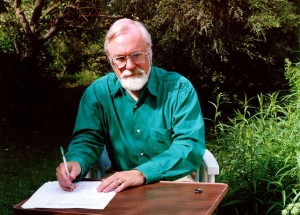Search Results for "powerpoint versiones"
Showing results for prevent versions
Ronald Stevenson: Music for Accordion
Ronald Stevenson (1928–2015) is best remembered for his huge output of music for the piano, an instrument he played with a rare understanding of tonal colour. It was thus entirely within character that he responded enthusiastically to the opportunity to explore the musical possibilities of the accordion, most impressively in a ‘Dance Poem’ of some scale. Stevenson was also an inveterate transcriber, producing hundreds of piano versions of pieces written for other forces. Neil Sutcliffe here returns the compliment, transcribing one of Stevenson’s own piano works and five of his songs for accordion, pulling the classical world and Scottish traditional music a little closer together.
Neil Sutcliffe, accordion
Michae O’Rourke, percussion
Rosie Lavery, soprano
Dmitry Shostakovich: Complete Music for Piano Duo and Duet, Volume Two
Much of Shostakovich’s orchestral music was first heard in versions he prepared for piano four hands or two pianos – but most of these transcriptions have languished unheard since those early performances, usually given for friends and colleagues or for Party officials. This series, which uncovers all the transcriptions prepared by Shostakovich himself, continues with the first recordings of his two-piano versions of the Second Piano Concerto and the Fifteenth Symphony.
Pianists Min Kyung Kim and Hyung Jin Moon
Franz Liszt: Complete Symphonic Poems, transcribed for solo piano by August Stradal, Volume Two
Although Liszt's thirteen symphonic poems exist in two-piano transcriptions prepared by the composer himself, it was his Czech student August Stradal (1860-1930) who was to transcribe them for solo piano — versions which demand almost superhuman virtuosity. As Malcolm MacDonald writes in his booklet essay, Stradal's versions 'transform these revolutionary orchestral compositions into viable and effective piano works, faithfully preserving their masterly musical substance'. A Fanfare review of Vol. 1 in this series had high praise for Risto-Matti Marin's pianism: 'One marvels at the stamina that can keep such a plethora of detail in place with such relentless élan; at his narrative shaping, which can turn up an already withering heat, so to speak, at climactic moments; at his overarching persuasiveness'.
Risto-Matti Marin, piano
Franz Liszt: Complete Symphonic Poems, transcribed for solo piano by August Stradal, Volume One
Although Liszt’s thirteen symphonic poems exist in two-piano transcriptions prepared by the composer himself, it was his Czech student August Stradal (1860–1930) who was to transcribe them for solo piano – versions which demand almost superhuman virtuosity. As Malcolm MacDonald writes in his booklet essay, Stradal’s versions 'transform these revolutionary orchestral compositions into viable and effective piano works, faithfully preserving their masterly musical substance’
Risto-Matti Marin, piano
Liszt: Symphonic Poems, Volume Three
Although Liszt’s thirteen symphonic poems exist in two-piano transcriptions prepared by the composer himself, it was his Czech student August Stradal (1860–1930) who was to transcribe them for solo piano – versions which demand almost superhuman virtuosity. As the late Malcolm MacDonald writes in his booklet essay, Stradal’s versions ‘transform these revolutionary orchestral compositions into viable and effective piano works, faithfully preserving their masterly musical substance’. A Fanfare review of Volume One in this series had high praise for Risto-Matti Marin’s pianism: ‘One marvels at the stamina that can keep such a plethora of detail in place with such relentless élan; at his narrative shaping, which can turn up an already withering heat, so to speak, at climactic moments; at his overarching persuasiveness’.
Risto-Matti Marin, piano
Charles O’Brien: Complete Orchestral Music, Volume One
The rediscovery of the music of the Edinburgh composer Charles O’Brien (1882–1968) continues with his most important work, his only symphony, a full-scale Romantic score in the tradition of Schumann and Brahms, powerful and lyrical by turn. It is coupled here with the later, more extended of the two versions O’Brien made of his heartening, Walter Scott-inspired overture Ellangowan, resplendent with a big Scottish tune which lingers in the memory.
Liepaja Symphony Orchestra; Paul Mann, conductor
Music for Alfred Hitchcock
Alfred Hitchcock commissioned his film scores from composers who were Hollywood's master-craftsmen. The concert items prepared from those scores — some of them in versions receiving their first recordings here — feature a dazzling variety of styles, from Baroque and jazz to dark Romanticism and angular angst, all using the orchestra with breathtaking virtuosity.
Danish National Symphony Orchestra, orchestra
John Mauceri, conductor
Dvořák: ‘Songs My Great-Grandfather Taught Me’
Antonín Dvořák has long been known as one of music's supreme melodists, but his songs have not made quite the headway of his best-known works. Now 30 of them are given a new lease of life in transcriptions for violin and viola and piano by his great-grandson, Josef Suk — the viola pieces performed here on Dvořák's own instrument, restored especially for this recording. With Josef Suk joined here by Vladimir Ashkenazy, this disc offers two of the world's greatest musicians playing — together for the first time — some of its most beautiful music, in versions never heard before.
Josef Suk, violin, viola
Vladimir Ashkenazy, piano
Shostakovich: Complete Music for Piano Duo and Duet, Volume One
Much of Shostakovich’s orchestral music was first heard in versions he prepared for piano four hands or two pianos – but most of these transcriptions have languished unheard since those early performances. This series uncovers all the transcriptions prepared by Shostakovich himself, coupling them with all his original music for piano duo and duet. It begins with the first recording of his four-hand version of the Ninth Symphony.
Vicky Yannoula and Jakob Fichert, piano duo, piano duet
Franz Liszt: Complete Symphonic Poems transcribed by August Stradal, Volume Four
Although Liszt’s thirteen symphonic poems exist in two-piano transcriptions prepared by the composer himself, it was his Czech student August Stradal (1860–1930) who transcribed twelve of them for solo piano – versions which demand almost superhuman virtuosity. Stradal died before he could tackle the last of the symphonic poems, Von der Wiege bis zum Grabe; Risto-Matti Marin has made good that lacuna with his own virtuoso transcription, and adds six of Stradal’s transcriptions of Liszt songs for good measure.
Risto-Matti Marin (piano)
David Gorton: Variations on John Dowland
John Dowland’s pavan Lachrimae was one of the hits of the early 1600s: musicians all over Europe made their own versions of it. The English composer David Gorton (b. 1978) proves that Dowland’s fascination endures, with this album of music that has its points of departure in Dowland, linking his time and ours over a span of 400 years – with a dig at some contemporary politicians along the way.
Longbow (Tracks 1,2-12, 21)
Stefan Östersjö, eleven-string alto guitar (Tracks 13-20)
David O’Brien — Dreams Come True: Recording my Grandfather’s Orchestral Music
On Monday, 4 August, one hundred years to the day after the start of the first World War, I found myself flying via Frankfurt on…
A Symphony by Mischa Spoliansky
It may come as a surprise to many that Mischa Spoliansky, the composer of the sly and witty cabaret songs that helped to launch the…
David Gorton’s “Variations on John Dowland” Reviewed on BBC Radio 3
Order Now Andrew McGregor and Kirsten Gibson talking on Record Review, BBC Radio 3, broadcast Saturday 18 March 2017: Kirsten Gibson reviews a collection of…
Einojuhani Rautavaara, Symphonist
THE FINNISH COMPOSER TALKS TO MARTIN ANDERSON In the light of the death of the Finnish composer Einojuhani Rautavaara, on 27 July 2016, in a…
John McCabe in his Own Words
John’s death on 13 February was not unexpected – indeed, he had given his brain tumour a good fight and long outlived his doctors’ prognoses.…
Stay In the Know
JOIN THE TOCCATA NEWSLETTER
"*" indicates required fields
By visiting our site, you agree to our privacy policy regarding cookies, tracking statistics, etc.
